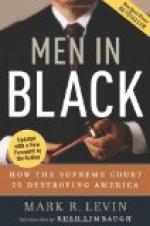Afterwards when the judge finds that there are enough jurymen in court for the needs of the calendar, he may privately send word to the juryman by a court attendant that he is excused for the term or for a few days until the Christmas rush is over or his wife is better. Judges are often humane, but if they were to excuse the juror openly they would find all the others in court clamoring for the same exemption. If the juryman merely wants to dodge the duty he probably does not get excused. The judge seems surprisingly intelligent and discriminating and able to pick the sheep from the goats. The man who merely wants to escape serving usually has to, and the man on whom it is a hardship is sometimes let off. Uniformly the jurymen feel that it is a necessary evil, but not so bad when they are once in court.
Until a case is called for trial they sit about the court-room or walk in the corridors. In the meanwhile, the judge is arranging the calendar, and they have been watching the maneuvers of the lawyers to have their cases put off, or they may have seen the amusing little by-plays when one lawyer crosses the aisle of the court-room, button-holes his opponent, and whispers something to him. The other lawyer motions to his client and the party moves to the hall where there is a secret conference about a proposition of settlement. Something is agreed upon or they may not come to terms and decide to go on with the trial. If there is to be a settlement the two lawyers walk up to the rail and say:
“Will your Honor excuse us if we interrupt and mark the case of Allen against Brewster settled.” The judge smiles with pleasure; he does not mind at all being interrupted for that purpose. He is pleased to have one more case off the score.
When the time comes for the selection of a jury they wait for their names to be called with the thought that the axe is about to fall. As they are examined they answer the questions of their occupations and opinions truthfully, but if for any reason they are excused, they leave the box with a smile at those impaneled and a sigh of relief as at danger escaped.
Like many honors, the position of foreman of a jury is an empty honor. He has the first seat and he heads the procession when the jury walk in and out of court; he also announces the verdict, but he has no actual power either in the jury-room or in the court. If there is a vote to be taken, he has no deciding voice, but in the deliberations he quickly falls to the level which his attainments justify.
During the trial a feeling of resentment at court procedure grows. It is not the judge any longer who is keeping and delaying them. The witnesses appear like fools it is true, but the lawyers make them act more foolishly than need be. Why does the judge make such absurd rulings? The law must be an unreasonable thing and the judge evidently knows a great deal about it. Why can’t the witnesses tell what they know? The most tiresome parts




